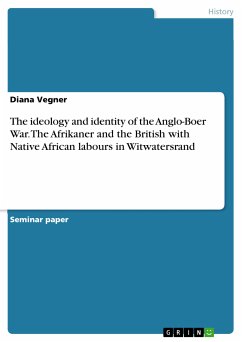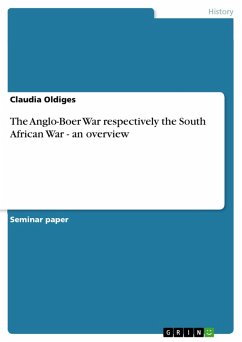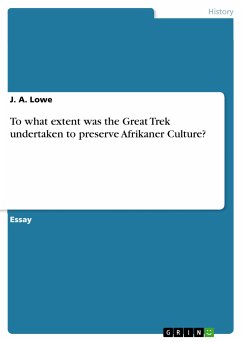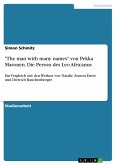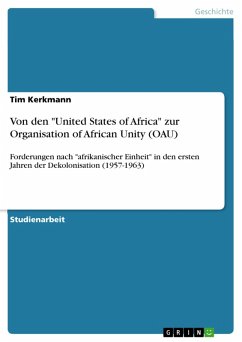Seminar paper from the year 2019 in the subject History - Africa, grade: 1,7, University of Kassel (FB05-Gesellschaftswissenschaften), course: Environmental History of Great Britain, language: English, abstract: This paper is about the question why a war took place in South Africa during the nineteenth and twentieth century between the Boers and the British. It aims at trying to understand and distinguish the different position, ideologies, origins, views and tensions between the "two European participants" of the war. The aim of the paper is to understand and investigate the reason of the European (and Afrikaner) hostility. Eventually, the result of the outbreak of the war. Moreover, the war was mostly interpreted as a "whites man's war" by historians, in which only the actions and interests of the white communities in South Africa were directly involved. Unfortunately, "one" group was not really taken into consideration. First, the participation of black people in the war. Secondly, the influence of the Anglo-Boer war to the black (also white) society and environment. And third, the response by black Africans to the conflict which has been passed almost completely over the years. The South African War (known as the Anglo-Boer War) from 1899 to 1902 remains the most destructive and terrible modern armed conflict, South Africa has experienced. The war represented itself as a powerful event, which shaped the history of South Africa in the twentieth century. The path to a major Anglo-Boer War was tortuous and involved conflicts of interest, ambitiousness and ideologies, especially between the Boer "group" and the British. In order to understand the history of the Anglo-Boer war itself and the participates in the war (the Boers and the British), it is important to know the role of Europeans in South Africa by a historical analysis.
Dieser Download kann aus rechtlichen Gründen nur mit Rechnungsadresse in A, B, BG, CY, CZ, D, DK, EW, E, FIN, F, GR, HR, H, IRL, I, LT, L, LR, M, NL, PL, P, R, S, SLO, SK ausgeliefert werden.

